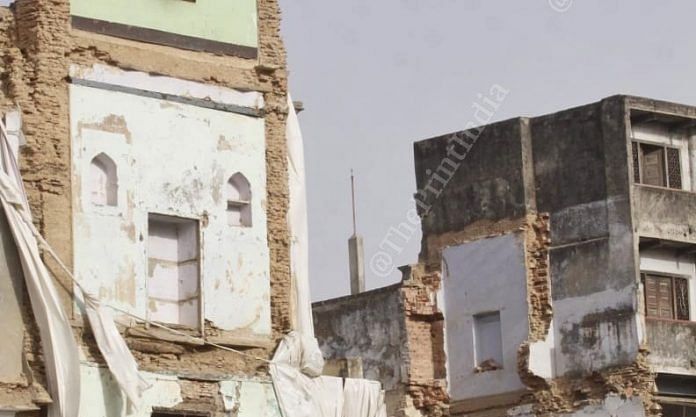Just a drive around Patna could help you see the ongoing slum demolition controversy in Mumbai in a comprehensive perspective. If you allow divisive vote politics to determine every aspect of governance, this is what you get: India’s most non-functional capital of India’s most non-functional state.
If all that matters to you is winning elections, and if it does not matter to you that you do it by dividing and exploiting the people, you can get three or even more (who knows!) terms in power. But, in return, you also get the state of Bihar. “You know why there has been a spate of kidnappings of doctors here, ” asks a senior police officer, then gives the answer, “because doctors are the only people left here who have some wealth. All the others have fled. Professionals have nothing to do. All manufacturing industry has fled, no services can function here, even owners of large automobile shops have shut shop and fled.”
Let us see how this Bihar syndrome reflects so dangerously in the debate currently raging in Mumbai. This is what the untidy gang of politicians, led by Margaret Alva, who have ganged up on their own chief minister, are saying. The Maharashtrians vote for the Shiv Sena and they will benefit from these demolitions. The purabiyas (migrants from eastern states) are Congress voters. So we have to choose between the locals and the loyalists. The city, its infrastructure, the law, all be damned. How different is this from Thackeray who says the same thing, but reverses the equation to promote his loyalists over the outsiders. And how different, indeed, from Laloo who believes he is okay with total anarchy as long as it actually strengthens his vote banks?
It is not a rich versus poor debate and the Congressmen who package their open subversion of their own government fool nobody by using that argument. This marks the return of the worst of the Sanjay Gandhi-style of politics where lakhs of people were brought into Delhi and settled in numerous clusters that first went by the ubiquitous name of JJ (jhuggi-jhompris) colonies and then bloomed all over the city as several Sanjay and Indira Nagars and colonies. All this while the political class itself was smug and secure in its own NDMC zone where no such nonsense was allowed. Mercifully, the decline of Sanjay’s Congress, represented by Bhagat, Sajjan Kumar and Tytler, and the rise of a more enlightened younger generation of leaders, not only arrested that process but also resulted in some clean up and rehabilitation. As a consequence, the migrant voting classes and the “locals” have lived in much greater harmony than in Mumbai. No surprise then that the rise and resurrection of Delhi under a Congress government has continued with the decline and decay of Mumbai, in the same period, also under the Congress.
Also read: Because we forget
The Congress in-house gang of saboteurs is fighting the battle for political turf against their own chief minister whom they detest in the name of the poor. Some of them are indeed genuine, like Margaret Alva. But they nurse such antediluvian notions of development and equality that they should be rubbing shoulders with the leaders of the CPI instead. Over the past week she has publicly rubbished her own government’s vision of the development of Mumbai, endorsed by her own prime minister and has also snubbed her party’s state leaders in public. She at least speaks from a passion that comes from old, abandoned Congress-style socialism. The opposition of others is purely for cynical political reasons.
If all of them are suddenly so concerned about rehabilitation now, you have to ask them what they were doing during the past five years in power. The suggestion of the year 2000 as cut-off date is scandalous as well as self-serving. The Congress came to power the last time in 1999 and had a full five years to start the clean up as well as rehabilitation. But it was during this period that fresh encroachments were encouraged. Not surprisingly, one of the loudest critics of the current clean-up, Kripa Shankar Singh, held key portfolios during this period. Incidentally he happen to be from the east, too, with purabiyas as vote banks.
You cannot deny that demolitions are inhuman, and reasonable rehabilitation is a fair demand. But should there be no punishment, no price paid by anybody, official or political, for allowing encroachments in the first place?
One persistent problem in India is the belief that government property belongs to no one and is fair game for political land mafias. Those who now complain about the clean-up benefitting builders’ mafias forget that these lands are only being freed up from the worst kind of politico-criminal land mafias who grab government properties, sell them to the poor as if they were their own, and then exploit the poor as vote banks. Do you really believe that a poor labourer coming from Hajipur or Raghopur in Bihar could come one day and grab howsoever tiny a piece of land for himself, on his own? Mafias grab land and sell or rent to him, and then hold the entire system of law and governance to ransom, riding the power of his vote.
This is why one of the most important reforms that needs to be carried out is in the area of property. Abolish urban land ceiling where it hasn’t yet been done, reduce stamp duties, computerise land records, regularise benami holdings, promulgate the long-delayed rent acts and reduce the linkage between urban property and political land mafias. Otherwise there will be no ending this cycle of encroachments, demolition, politicising and, ultimately, the slide of our big cities, particularly Mumbai, into a Patna-like mess.
Also read: Proud to pay



